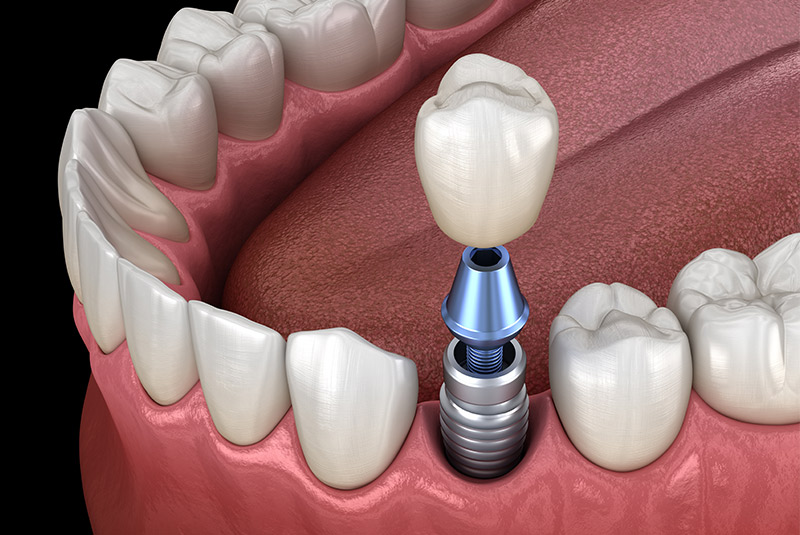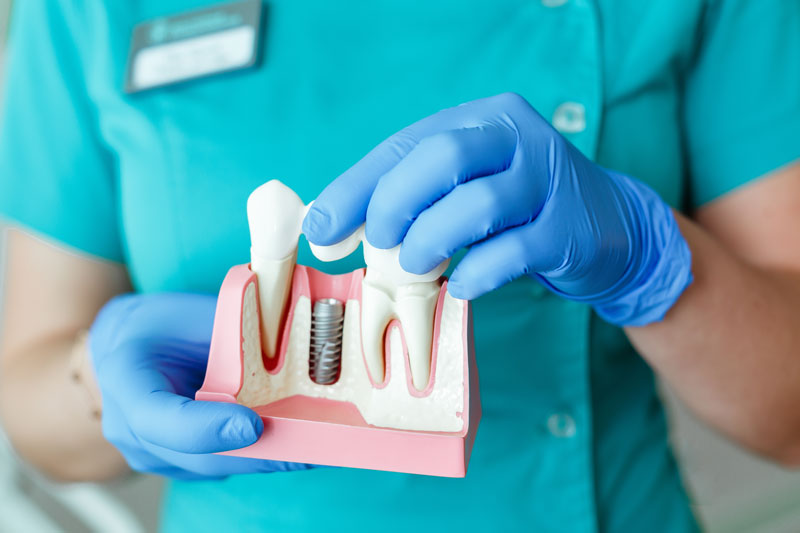SEO H1 Tag - Byron and Pecatonica, IL
Tips, Facts, And The
Latest In Dentistry

Navigating Dental Implant Risks: Essential Considerations and Safety Insights
Posted in Dental Implants
Posted on March 10, 2025 by Eric Chmiel

Dental implants have become one of the most advanced and reliable solutions for replacing missing teeth, offering patients improved function, aesthetics, and oral health preservation. Unlike traditional dentures or bridges, implants integrate directly with the jawbone, creating a strong and permanent foundation for artificial teeth. However, as with any surgical procedure, there are potential dental implant risks that patients should be aware of before undergoing treatment. While the success rate for implants is remarkably high—often exceeding 95%—certain complications can arise due to various factors.
By understanding these risks, patients can take proactive steps to minimize complications and ensure long-term success. The most common concerns include infection, implant failure, nerve damage, and sinus issues (when implants are placed in the upper jaw). Although rare, these risks highlight the importance of proper pre-treatment evaluation, precision in implant placement, and diligent post-operative care. An experienced implant specialist will assess your unique oral health needs, discuss potential concerns, and guide you through a tailored treatment plan designed to maximize success.
Key Factors That Influence Dental Implant Success
Several factors can affect the outcome of dental implant surgery, including the patient’s overall health, oral hygiene, and lifestyle choices. Chronic conditions such as diabetes, osteoporosis, and autoimmune disorders can impact healing and increase the likelihood of implant failure. Additionally, smoking and excessive alcohol consumption reduce blood flow to the gums, slowing the healing process and raising the risk of infection. Patients considering dental implants should disclose their full medical history to their dentist to determine whether they are suitable candidates.
Beyond personal health, surgical technique and implant placement play a critical role in long-term success. An improperly positioned implant may lead to bite misalignment, excess pressure on surrounding teeth, or nerve damage. Bone quality is also essential, as insufficient jawbone density can cause implant instability and failure. In such cases, bone grafting procedures may be necessary to reinforce the implant site. Selecting a highly skilled dental professional with extensive implant experience greatly reduces these risks, ensuring precise placement and optimal integration with the jawbone.
Warning Signs to Watch for After Implant Placement
Recognizing the early signs of potential implant complications is crucial to preventing long-term damage. Persistent pain, swelling, or bleeding at the implant site beyond the normal healing period may indicate infection or implant rejection. Another common issue, peri-implantitis, is a bacterial infection that causes gum inflammation and bone loss around the implant. If left untreated, this condition can lead to implant failure and require removal or additional corrective procedures.
Other red flags include loose or shifting implants, difficulty chewing, receding gums, and changes in bite alignment. If any of these symptoms arise, it is essential to seek prompt dental evaluation. In many cases, minor issues can be managed through professional cleanings, adjustments, or medication. However, early detection and intervention remain key to preserving the health and longevity of dental implants. Regular dental check-ups ensure that any complications are addressed before they escalate into more serious concerns.
Best Practices for Minimizing Risks and Enhancing Implant Longevity
Preventive care and proper post-operative maintenance significantly reduce the likelihood of complications and ensure the longevity of your dental implants. Practicing excellent oral hygiene—including brushing twice daily with a soft-bristle toothbrush, flossing, and using an antibacterial mouth rinse—helps prevent infection and promotes gum health. Patients should also follow all post-surgical guidelines provided by their dentist, including dietary recommendations and activity restrictions during the initial healing period.
Regular dental visits are essential for monitoring implant stability and overall oral health. Your dentist will perform professional cleanings and conduct thorough assessments to detect any early signs of implant-related concerns. Additionally, avoiding hard foods, teeth grinding, and smoking further safeguards your implant investment. By working with a trusted implant provider and committing to diligent care, patients can enjoy long-lasting, natural-looking results that enhance both function and confidence.
Are you ready to restore your smile with dental implants at our skilled and trusted dental practice? Don’t wait to get the smile of your dreams with us. Get in contact with our doctor, Dr. Justin Bonvallet and our exceptional team at our practice to schedule an appointment today!



